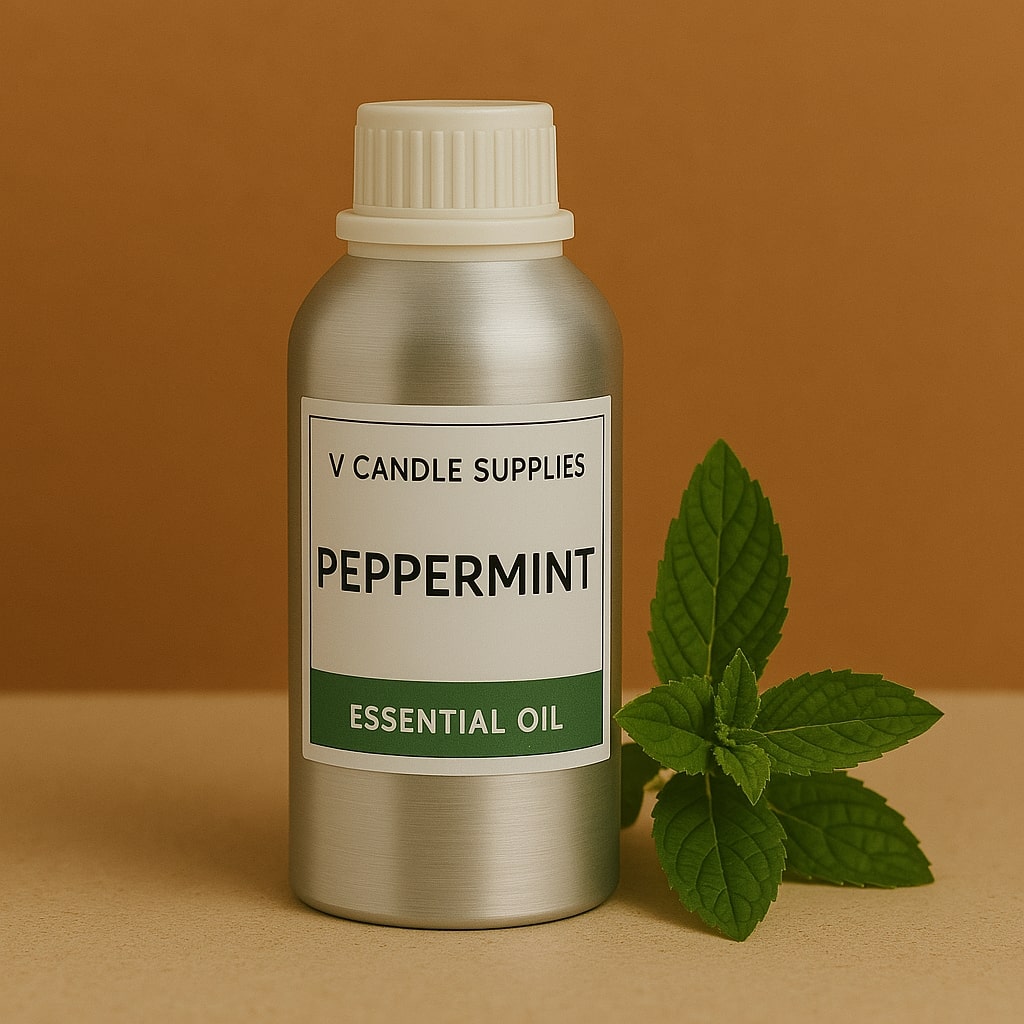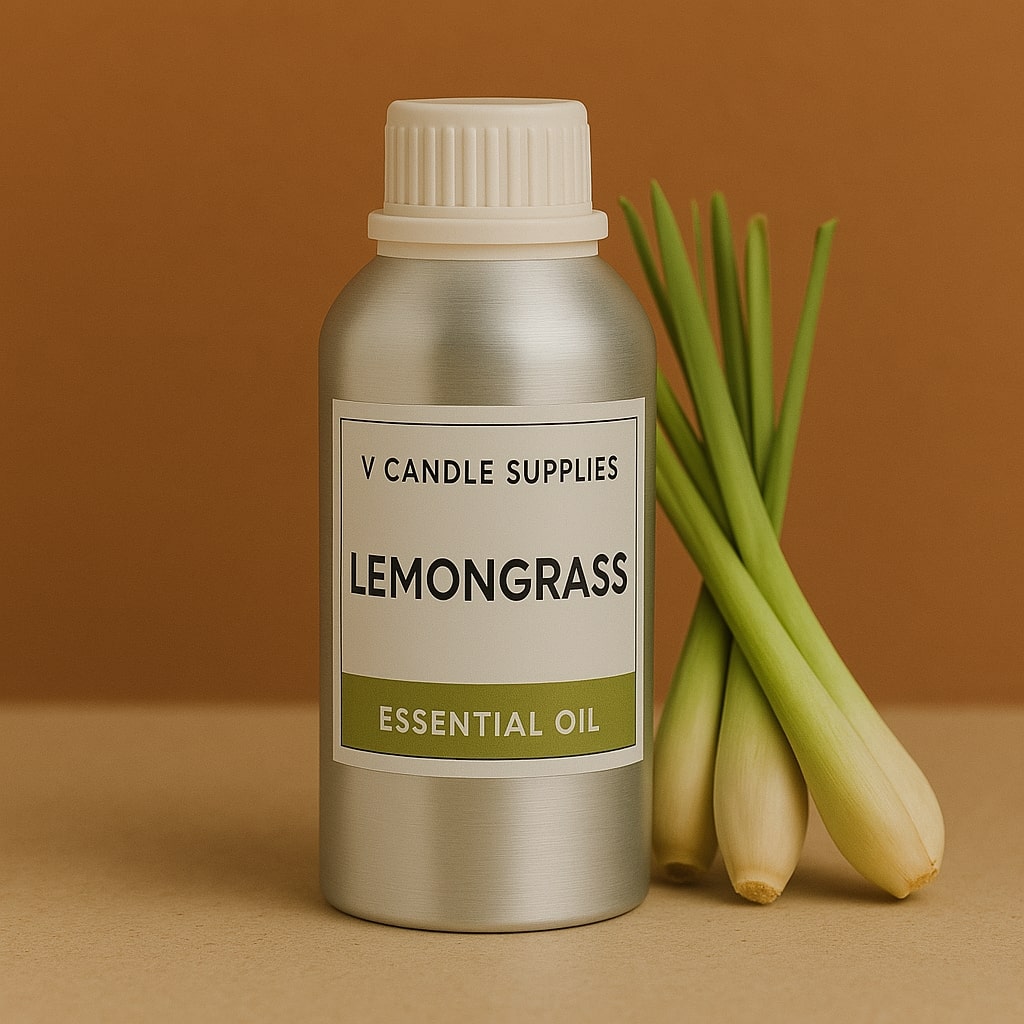COD available for orders below 1500. Shipping Charges will be added at the end while placing the order. Happy Candle 🕯️ Making. Use code "Goodbye Winters" for 10% discount on Silicon Molds, Fragrance Oil & Essential Oil. Dispatch Timeline - 3 to 4 days minimum due to peak season.
What Are Essential Oils, and Do They Work?

Essential oils have become a popular part of everyday life. You might have come across them in beauty products, massage oils, or even scented candles. Some people swear by their calming effects, while others use them to freshen up their homes or make handmade soaps and candles. But as essential oils become more common, many of us are left wondering, what are essential oils, and do they work?
This question is crucial because even though essential oils are natural, not everything natural is always safe or effective. In this blog, we’ll look at essential oils, how they work, whether they genuinely help your health, and how you can use them for creative projects like soap making and candle making.
Let’s get started.
What Are Essential Oils?
Essential oils are highly concentrated plant extracts made by steaming or pressing plant parts, like flowers, bark, leaves, or fruit to capture the compounds that produce fragrance. These natural oils hold the plant’s “essence,” meaning its scent and therapeutic properties.
Each essential oil has a unique combination of active ingredients that give it specific benefits. For example:
- Lavender oil is known for calming and promoting sleep.
- Tea tree oil has antibacterial properties.
- Peppermint oil may help with headaches or nausea.
Essential oils are often used in aromatherapy, which means they’re inhaled or diffused to improve well-being. Some people apply them to the skin when diluted with a carrier oil. They can also be used in personal care items, household cleaning, and handmade crafts like soaps and candles.
Do Essential Oils Actually Work?
This is a fair and important question. Many people believe essential oils have real benefits, but it’s also wise to understand what science says about them. According to medical professionals and health organization, essential oils may be helpful in specific ways, but they are not a miracle cure.
Based on research and expert opinion, here are five key areas where essential oils may work.
Stress and Anxiety Relief
Aromatherapy is one of the most common uses for essential oils. Studies show that essential oils such as lavender oil, bergamot oil, and ylang-ylang oil can help reduce stress and promote calmness. Inhaling these scents may send messages to the brain’s emotional centre, the limbic system, allowing you to feel more relaxed.
Many people use essential oils in diffuser at home, especially in the evenings, to wind down after a long day.
Better Sleep
Essential oils might offer support if you struggle with falling or staying asleep. Lavender oil has been studied for its calming effects and is known to help improve sleep quality. Inhaling lavender before bedtime or adding drops to your pillow or a diffuser may help you relax more easily and fall asleep faster.
While it won’t replace medical treatments for sleep disorders, it can be a helpful part of a bedtime routine.
Mild Pain and Headache Relief
Some essential oils may offer mild pain relief. For instance, peppermint oil, when applied to the skin (after proper dilution), may reduce the feeling of tension and even help with headaches. Some people also use eucalyptus oil for sore muscles or sinus pressure.
However, it’s important to know that essential oils are not strong enough to replace proper medication for severe pain and should always be used carefully.
Antibacterial and Antifungal Properties
Certain essential oils, like tea tree, eucalyptus, and clove oil, have shown natural antibacterial or antifungal properties. That’s why they’re often used in skincare products for acne or fungal infections like athlete’s feet.
They’re also popular in homemade cleaning products, where their natural properties and strong scents help freshen and disinfect surfaces.
Support for Colds and Respiratory Problems
Essential oils won’t cure a cold but might help ease some symptoms. Oils like eucalyptus and peppermint can be helpful when inhaled as steam or used in a diffuser. Their menthol-like properties may help open up nasal passages and make breathing feel easier.
Always be careful not to apply these oils near your eyes or use them around young children without advice, as they can be strong.
7 Common Essential Oils and Their Benefits
Here’s a closer look at seven popular essential oils that work well in candle and soap making. These oils are loved for their scent and how they hold up during the crafting process.
Let’s break them down one by one.
Lavender Oil

Scent: Soft, floral, and calming.
Why it’s great: Lavender is one of the most versatile essential oils. It’s been used for centuries to help people relax, sleep better, and even soothe irritated skin. It blends well with other oils, like peppermint, eucalyptus, or lemon.
Lavender adds a peaceful scent to candles, perfect for winding down in the evening or setting a calm mood. It’s gentle on the skin and gives soap a soothing, spa-like feel.
Bonus Tip: Combine lavender with rosemary or sweet orange for a lovely herbal or citrus blend.
Peppermint Oil

Scent: Cool, crisp, and minty.
Why it’s great: Peppermint oil is energising and refreshing. It’s a favourite for people who like bold, clean scents. Peppermint also has a cooling effect on soaps, especially during the summer.
Peppermint adds a sharp, fresh scent that wakes you up. It’s great alone or combined with vanilla for a minty-sweet aroma. It’s often used in festive blends like candy cane or winter mint during the holidays. Peppermint soap gives you an incredible, tingly feeling on the skin, especially helpful in “wake-up” bars or after a workout. It’s also known to help with oily or congested skin.
Caution: Peppermint oil is strong! Always dilute properly, and avoid using too much on sensitive skin.
Lemongrass Oil

Scent: Fresh, lemony, and earthy.
Why it’s great: Lemongrass’s clean, zesty scent instantly lifts your mood. It’s known for its antibacterial properties and is often used in skincare and natural cleaning products.
The scent of lemongrass fills a room quickly and is excellent for kitchens, bathrooms, or anywhere you want to feel fresh and energised. It also helps to keep bugs away, which is an incredible bonus! Lemongrass gives your soap a lovely citrus scent without being too sweet. It’s refreshing, helps with oily skin, and leaves you feeling squeaky clean.
Pro Tip: Pair lemongrass with eucalyptus or tea tree oil for a clean, spa-like blend.
Tea Tree Oil

Scent: Medicinal, earthy, and slightly sharp.
Why it’s great: Tea tree oil is known for being naturally antibacterial and antifungal. It’s often used to treat acne or minor skin issues, making it perfect for cleansing products.
Tea tree’s scent can be strong but becomes fresh and herbal when blended with softer scents like lavender or lemon. This is great for people who love earthy, “clean” smells. Tea tree oil is also perfect for making facial bars, body washes, or hand soaps, especially for oily or blemish-prone skin. It gives your soap a deep-clean feeling.
Note: Always use tea tree oil in small amounts and test on your skin before using it regularly.
Eucalyptus Oil
Scent: Sharp, clean, and slightly minty.
Why it’s great: Eucalyptus is popular in spas for a reason. It helps clear your head, opens your breathing, and refreshes you. It’s a great pick-me-up scent.
Eucalyptus gives your space a crisp, spa-like atmosphere. It’s great for stress relief or clearing the air after a long day. It blends well with peppermint, rosemary, or lemon. Plus, eucalyptus soap gives a cooling, soothing sensation on the skin. It’s also thought to help with muscle aches and sinus issues. A eucalyptus-mint bar is always a hit.
Fun Tip: Try a “shower steamer” with eucalyptus oil to turn your bathroom into a mini spa!
Sweet Orange Oil
Scent: Bright, citrusy, and sweet.
Why it’s great: Sweet orange oil smells like sunshine. It’s cheerful and uplifting and works well with almost any other oil. It’s also gentle enough for sensitive skin.
This oil adds a burst of happiness to any room. It’s great for kitchens or living areas. Plus, it mixes beautifully with cinnamon, clove, or patchouli for warm, cozy blends. Orange oil gives a fresh scent, perfect for morning showers. It helps lift your mood and leaves your skin smelling lightly citrusy all day.
Watch Out: Like other citrus oils, sweet orange can make your skin more sensitive to the sun. Rinse off well and avoid sunbathing right after using citrus soap.
Rosemary Oil
Scent: Herbal, woody, and a little minty.
Why it’s great: Rosemary oil has a clean, sharp scent that helps with focus and mental clarity. It’s also known for improving circulation and reducing dry skin.
This scent is excellent for studying or concentrating. It’s clean without being overpowering. Rosemary also pairs well with lavender, lemon, or eucalyptus. Rosemary is also a favourite for herbal or garden-inspired bars. It adds a natural, outdoorsy scent and is thought to help with dry or flaky skin.
Fun Idea: Add dried rosemary leaves into your soap for a rustic, textured look!
Final Thoughts on Choosing Essential Oils
So, what are essential oils, and do they work? The short answer is yes, they can! While they’re not magic solutions, essential oils offer many benefits—from lifting your mood and calming your nerves to gently supporting your skin and creating a soothing home environment. Whether lighting a handmade candle after a long day or using a refreshing soap in the shower, essential oils help add that extra special touch.
If you’re ready to start your candle or soap-making journey, having the right supplies makes all the difference. Whether you’re a beginner or a seasoned crafter, we recommend checking out V Candle Supplies. We offer a wide range of high-quality essential oils, candle wax, wicks, moulds, and soap bases, everything you need to bring your creative projects to life.
With the right ingredients and a little creativity, you can make candles and soaps that not only smell amazing but also feel meaningful. So, why wait? Dive into the world of essential oils and handmade crafts confidently, we have covered you from start to finish.




